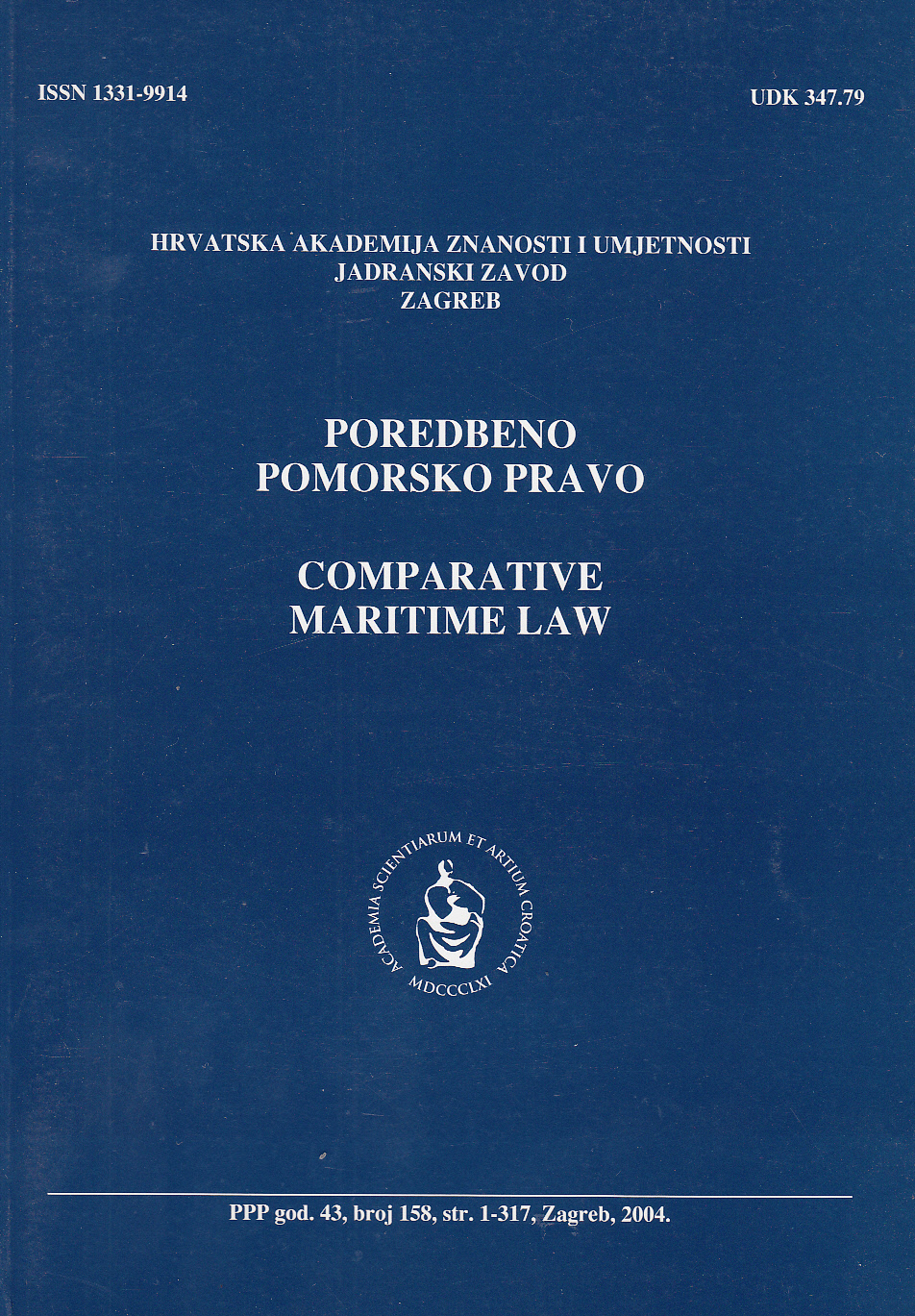Pravo progona u propisima Republike Hrvatske i praksi Ministarstva unutarnjih poslova od 1992. do 2002. godine
Right of hot pursuit in the regulations of the Republic of Croatia and the practice of the Ministry of Internal Affairs, from 1992 to 2002
Author(s): Vesna Barić Punda, Damir JurasSubject(s): Criminal Law, International Law, Commercial Law
Published by: Hrvatska akademija znanosti i umjetnosti
Keywords: hot pursuit of foreign ships; sovereignty of a coastal State; fishing; fishing boat; territorial sea - boundary; Ministry of Internal Affairs; Republic of Croatia;
Summary/Abstract: Five decades ago, academician lbler wrote an article entitled ''The right of hot pursuit today''. Since then, International Law has mostly answered the questions brought up by lbler in those times. Direct normative value has not failed to appear either. Namely, in 1958, the right of hot pursuit was explicitly recognized by the Convention on High Seas, and in 1982, by the United Nations Convention on Maritime Law. Ibler emphasized the importance of stating precisely all the elements of the right of hot pursuit because of the same reasons which are pointed out in this article today, in 2004. These relate to intensive trespassing of the fishermen of one country into the territory of another and to the international reputation of a state. As far as the Republic of Croatia as a maritime state is concerned, particularly in terms of its international reputation, it is of utmost importance that there are no valid objections to the manner in which Croatia realizes its right of hot pursuit or to the consequences of that hot pursuit (stopping, searching, confiscating a ship, and pronouncing and enforcing penalties). The article focuses on an in-depth analysis of the regulations relating to the hot pursuit of ships and to the actions of authorized bodies in the context of the legal sources of the Republic of Croatia de lege lata and de lege ferenda. The article also presents an analytic approach to the implementation of the right of hot pursuit by the Ministry of Internal Affairs (especially with reference to the consequences of hot pursuit) in the period from 1992 to 2002. An account of the relevant court practice is also included.
Journal: Poredbeno pomorsko pravo
- Issue Year: 43/2004
- Issue No: 158
- Page Range: 85-99
- Page Count: 15
- Language: Croatian

